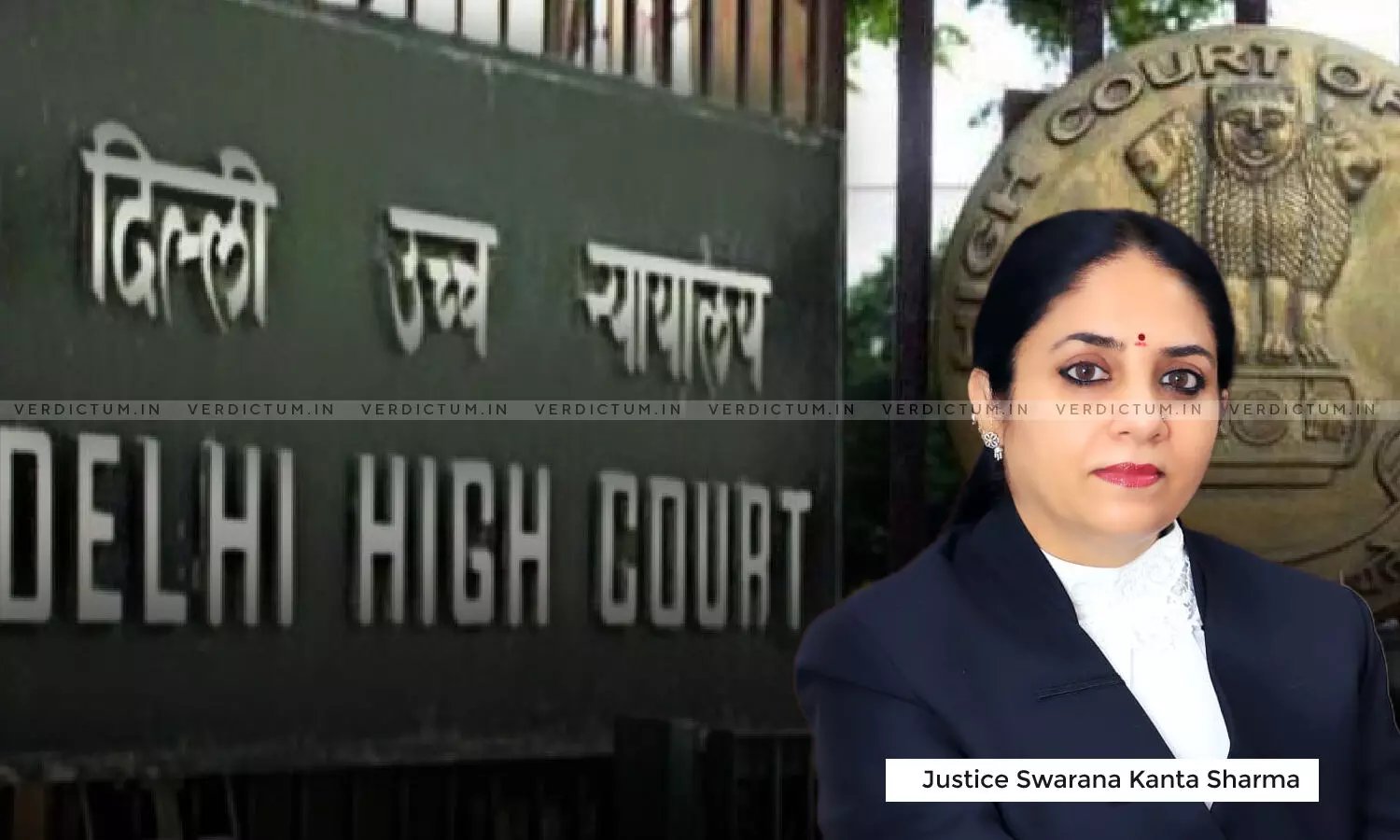
Sexual Assault Complainants Entitled To Fair Trial But Responsibility Of Justice System To Protect Rights Of Accused Cannot Be Ignored: Delhi HC
 |
|The Delhi High Court has observed that the complainants in sexual assault cases are entitled to fair trial, the responsibility of the criminal justice system towards protecting rights of the accused also cannot be ignored.
The bench of Justice Swarana Kanta Sharma made this observation while dismissing the plea challenging the Order whereby a man was discharged of offences punishable under Section 376/506 of Indian Penal Code.
“While there can be no denying that the complainants in sexual assault cases are entitled to fair trial, the responsibility of the criminal justice system towards protecting rights of the accused also cannot be ignored.”, the Court held.
The Court noted that Courts have to ensure that the right of fair trial to the complainant and rights of the accused of being protected from mala fide trial are taken care of in the Court‘s crucial endeavor to ensure equality before law.
In this case, an FIR was lodged by the prosecutrix who had alleged that her friend, whom she had met on train, had established physical relations with her. It was alleged that he had threatened to show obscene photographs to her family members. Thereafter, the accused had allegedly compelled her to establish physical relationship with him several times.
The prosecutrix narrated the incident to her husband and a complaint was filed with the police, leading to registration of the FIR.
During the investigation, prosecutrix had stated that her son and daughter were born from the physical relationship between her and the accused.
The Trial Court had discharged the accused.
Naresh Chahar, APP, appeared for State, Advocate Yogesh Swaroop appeared for the accused.
The High Court noted that there was continuous sexual relationship between the prosecutrix and accused for 12 long years, while both of them were married to different partners.
The Court also noted that there was no continuous threat as such of the photographs and videos being shown to her family, since the mobile phone itself was never recovered as the description and details of the phone were never given by the prosecutrix.
“It is not a case where accused exploited or abused any disability or lack of power of the complainant or abused power or had put her under any fear of injury due to which she carried on with the relationship for 12 years and after 12 years had reported the matter to the police and also had voluntarily disclosed herself that the two children were fathered by the accused.”, the Court observed.
The Court pointed out that the accused continuously kept on visiting the house of the prosecutrix and she kept on visiting him at his official accommodation which showed express as well as implied consent to the sexual relationship.
The Court held that “…it cannot be said even prima facie, by any stretch of imagination, that the prosecutrix had given her consent for sexual relationship with the accused under any misconception of fact or any fear of injury, to even hold that a prima facie case is made out within the meaning of Section 375 of IPC for framing charge against the accused.”
Thus the Court upheld the Order discharging the accused.
However, the Court clarified that the Court was testing the applicability of laws in the context of this case in its peculiar circumstances, and is not laying down any law regarding consent for every rape case.
Cause Title- State v. Sudershan Kumar (Neutral Citation Number 2023:DHC:1985)
Click here to read/download Judgment